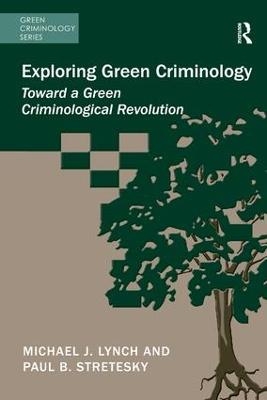
Exploring Green Criminology
Routledge (Verlag)
978-1-4724-1807-4 (ISBN)
Few criminologists have drawn attention to the fact that widespread and significant forms of harm such as green or environmental crimes are neglected by criminology. Others have suggested that green crimes present the most important challenge to criminology as a discipline. This book argues that criminology needs to take green harms more seriously and to be revolutionized so that it forms part of the solution to the large environmental problems currently faced across the world. It asks how criminology should be redesigned to consider green/environmental harm as a key area of study in an era where destruction of the earth and the world’s ecosystem is a major concern and examines why this has remained unaccomplished so far. The chapters in this book apply an environmental frame of reference underlying a green approach to issues which can be addressed from within criminology and which can encourage criminologists and environmentalists to respond and react differently to environmental crime.
Michael J. Lynch is a professor in the department of criminology, and associated faculty in the Patel School of Global Sustainability, at the University of South Florida. He has been engaged in research on green criminology since 1990. His other interests include radical criminology, racial bias in criminal justice processes, and corporate crime and its control. He is the recipient of a Lifetime Achievement Award from the American Society of Criminology’s Division on Critical Criminology. Paul B. Stretesky is a Professor of Criminology in the Department of Languages and Social Science at Northumbria University. In addition to his research on green criminology, he is engaged in research on families of homicide victims and missing persons, and the study of environmental justice. He is co-author of Guns, Violence and Criminal Behavior: Accounts from the Inside as well as Environmental Crime, Law and Justice.
Chapter 1 Toward a Green Criminological Revolution; Chapter 2 Defining the Parameters of the Problem; Chapter 3 Science and a Green Frame of Reference; Chapter 4; Chapter 5 Green Victimology; Chapter 6 Green Behaviorism; Chapter 7 The Life Course Trajectories of Chemical Pollutants; Chapter 8 Green Criminology and the Treadmill of Production; Chapter 9 A Green Criminological Approach to Social Disorganization; Chapter 10 The End of Crime, or the End of Old-fashioned Criminology?;
| Erscheint lt. Verlag | 8.5.2014 |
|---|---|
| Reihe/Serie | Green Criminology |
| Verlagsort | London |
| Sprache | englisch |
| Maße | 156 x 234 mm |
| Gewicht | 456 g |
| Themenwelt | Recht / Steuern ► EU / Internationales Recht |
| Recht / Steuern ► Strafrecht ► Kriminologie | |
| Recht / Steuern ► Strafrecht ► Strafverfahrensrecht | |
| ISBN-10 | 1-4724-1807-7 / 1472418077 |
| ISBN-13 | 978-1-4724-1807-4 / 9781472418074 |
| Zustand | Neuware |
| Informationen gemäß Produktsicherheitsverordnung (GPSR) | |
| Haben Sie eine Frage zum Produkt? |
aus dem Bereich


